Coconut Milk Benefits: 16 Health, Skin & Hair Perks
Include this nourishing potion in your diet and beauty routine for a welcome difference.
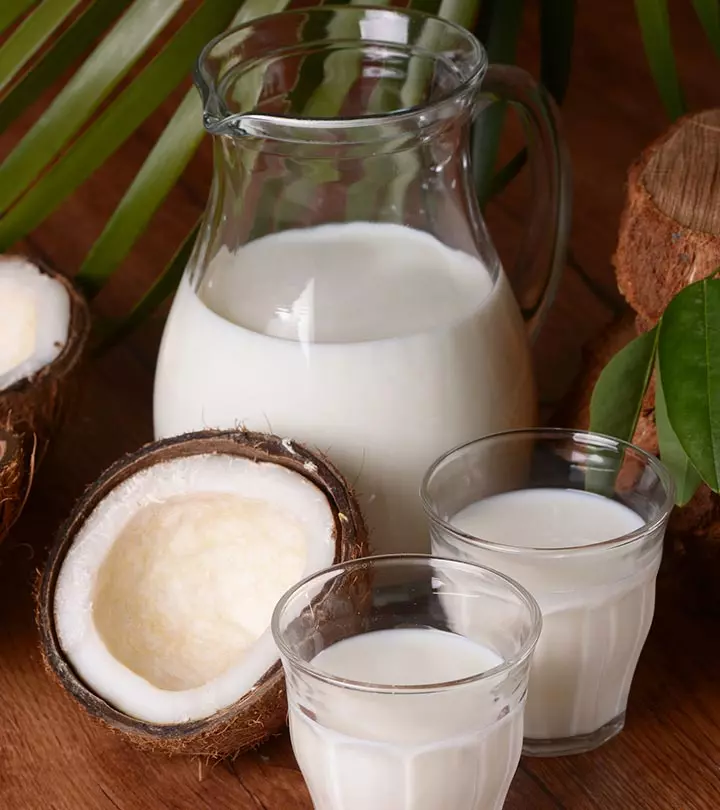
Image: iStock
The benefits of coconut milk are so wide-ranging that it is considered one of the world’s healthiest foods. Moreover, it is delicious and easily available, particularly in Southeast Asian countries.
“The two basic items to sustain life are sunshine and coconut milk,” says Dustin Hoffman, a well-known American director and actor. But does it really deserve all the hype? In this article, we look at the nutritional profile of coconut milk, its benefits, potential side effects, how to make it at home, and more. Read on!
Let’s begin!
 Know Your Ingredient: Coconut Milk
Know Your Ingredient: Coconut MilkWhat Is It?
A thick, creamy liquid derived from the tender white flesh of mature coconuts.
What Are Its Benefits?
It is especially helpful for those who are lactose intolerant. It helps control diabetes and weight loss. It also improves skin and hair health.
Who Can Use It?
Anyone can consume coconut milk except for those who have high cholesterol and blood pressure levels. People with tree nut allergies should also avoid it.
How Often?
1-2 cups daily or in moderation.
Caution
Overconsumption may cause digestion problems and unhealthy weight gain. Coconut milk may interact with Isoniazid, a drug used to treat tuberculosis.
In This Article
What Is Coconut Milk?
There are four edible components to coconut: coconut water, coconut cream, coconut meat, and coconut milk.
Coconut water is the milky water that comes out when you break open a fresh coconut (and is about 94% water).
Coconut milk is not “milk” in the conventional sense. It is the thick liquid that you get when you blend coconut meat with water and then strain it (about 50% water).
One of the best ways to obtain coconut milk is to buy older, mature coconuts. As coconuts age, the water in them gets replaced by the meat, making them better for coconut milk.
Coconut milk is a nutritious plant-based superfood that is vegan, dairy-free, and lactose-free, making it an ideal choice for those seeking wellness through a more plant-based diet.
In the following section, we will see if coconut milk can be good for you.
Key Takeaways
- Coconut milk has antiviral and antimicrobial properties which can treat acne and other skin conditions..
- Coconut milk helps in controlling obesity, diabetes and promotes a healthy heart as it is rich in fats.
- It has a hydrating effect on skin, which helps in treating sunburns and signs of premature aging.
- Coconut milk when, applied on hair, acts as a natural conditioner and restores dull and damaged hair.
Is Coconut Milk Good For You?
Don’t let the fact that coconuts are high in fat deter you.
Coconut milk, when consumed in moderation, can be part of a healthy diet and beauty routine.
Coconut milk is used in a variety of recipes and skin and hair treatments. It is used as a base ingredient in almost every dish in South East Asia. If you have Thai food regularly, you know what I am talking about. It’s also popular in Hawaii, India, and certain South American and Caribbean countries.
Coconut milk is used in cooking not only because of its taste but also because of the wide range of nutrients it contains.
Let’s look at a rundown of coconut milk’s nutrient profile.
Coconut Milk Nutrition Facts
Coconut milk is a high calorie food as it is rich in Medium Chain Triglycerides (MCTs), a type of saturated fat.
It is also a good source of vitamins and minerals like manganese and copper.
Check out the nutritional profile* of coconut milk below (serving size: 1 cup, 240 grams).
| Nutrients | Nutrition Value | %DV |
| Calories | 552 kcals | 28% |
| Carbohydrates | 13 g | 4% |
| Protein | 5.5 g | 11% |
| Fat | 57 g | 88% |
| Saturated fat | 51 g | 254% |
| Monounsaturated fat | 2.4 g | |
| Polyunsaturated fat | 0.6 g | |
| Dietary fiber | 5.3 g | 21% |
| Sugar | 8 g | |
| Vitamin C | 7 mg | 11% |
| Folate | 38 mcg | 10% |
| Iron | 4 mg | 22% |
| Magnesium | 89 mg | 22% |
| Phosphorus | 240 mg | 24% |
| Potassium | 631 mg | 18% |
| Copper | 0.6 mg | 32% |
| Manganese | 2.2 mg | 110% |
| Selenium | 14.9 mcg | 21% |
*values sources from USDA, coconut milk, raw
The trace elements present in coconut milk are responsible for the regulation of electrolytes, nerve control, muscle relaxation, and the production of energy in the body.
Let’s now talk about the possible health benefits of this tasty non-dairy alternative.
What Are The Health Benefits Of Coconut Milk?
Coconut milk may play a role in maintaining a healthy heart, aid digestion, and strengthen the immune system along with the nervous system. Keep reading for more details about its benefits.
1. Effects On Heart Health

Did you ever imagine that consuming something rich in fat can help promote a healthy heart?
Coconut milk contains lauric acid, a medium-chain fatty acid that might have a positive effect on serum lipid and cholesterol levels in men and women(1).
A study was conducted on 60 healthy people for 8 weeks. For 5 days a week, they were fed coconut milk porridge, and their cholesterol levels were tested. The researchers found that the “bad cholesterol” (LDL) levels of the participants considerably decreased and “good cholesterol” (HDL) levels increased. The study concluded that coconut milk did not have a negative effect on lipid profiles (2).
2. Effect On Weight Loss
Coconuts contain 12% medium-chain triglycerides (MCTs), and capric and caprylic acid that are less likely to be stored as fat. They also promote the production of ketones, and induce satiety, which prevents overeating. This quality may be beneficial in long-term weight loss.
In a study in 2003, 24 overweight individuals were given diets rich in MCT and long-chain fatty acids (LCT) for 4 weeks. Their body composition was tested at the end of the time frame. It was noticed that consuming MCTs resulted in decreased levels of adipose tissue as compared to LCTs.
The study further stated that MCTs could be considered as agents that help in the prevention of obesity (3).
No studies have directly examined how coconut milk affects weight and metabolism. Further studies are needed before any claims can be made.
3. Helps Control Diabetes
The virgin coconut oil that is prepared from coconut milk has been shown to affect blood glucose levels positively. It contains antioxidant properties that improve the insulin secretion in the body (4).
Another paper researched in Thailand talked about the benefits of coconut oil for diabetes. It suggested that virgin coconut oil increases the efficiency of cellular response to insulin, reduces blood sugar levels, stimulates metabolism, and decreases the glycemic indexi A food rating system that shows the carbohydrate content of food and how quickly it affects blood sugar levels after intake. of food, thereby helping control diabetes (5).
4. May Help Deal With Alzheimer’s Disease
Coconut milk contains a modest amount of medium-chain triglycerides (MCTs).
These MCTs are easily absorbed by the liver and get converted to ketones.
Ketones have been identified as an alternative source of energy for the brain and can be beneficial for people with Alzheimer’s disease or those who are at the risk (5).
5. Has Antibacterial, Antiviral, And Antifungal Properties
Several studies have been conducted on coconut and its various forms to test their abilities on inflammation and microbes.
Virgin coconut oil, the pure form of oil extracted from coconut milk, is rich in MCTs and lauric acid. Due to this, virgin coconut oil has excellent anti-inflammatory, antibacterial, antiviral, and antifungal properties (6).
Another study performed in Chiang Mai, Thailand, investigated the pharmacological effects of virgin coconut oil. The results suggested that the oil possessed anti-inflammatory, analgesici Drugs that block the conduction of nerve impulses and alter sensory perception to help relieve pain. , and antipyretici A substance that causes the hypothalamus gland in the brain to override the process that increases temperature and reduces fever. properties (7).
6. May Prevent Ulcers

If you are suffering from stomach ulcers, drinking coconut milk can help in significantly reducing and preventing ulcers altogether.
Coconut milk contains anti-ulcer and antibacterial properties that fight the bacteria causing the ulcers.
Drinking a glass of coconut milk at least once a week can give positive results in no time.
A study was carried out in Chennai, India, to test the efficacy of a polyherbal cream, containing coconut milk as one of its main ingredients, on diabetic patients with foot ulcers.
The study suggested that due to the anti-inflammatory and antibacterial properties of coconut milk and some other ingredients, this cream was highly effective in healing the ulcers (8).
7. May Promote The Health Of Prostate Glands
Coconut milk is a great source of a lot of vitamins and minerals. Among those nutrients is zinc, an element that helps to maintain the health of the prostate gland and reduce the risk of prostate cancer (9).
The prostate gland already contains a high amount of zinc in its soft tissues, but drinking coconut milk regularly makes sure that the zinc levels in the body are replenished.
No doubt, the benefits of coconut and its products are diverse. The milk extracted from this tropical fruit supports your overall health. Now, the next section discusses how it may keep your skin healthy.
What About The Benefits Of Coconut Milk For Skin?
While the benefits of coconut water for the skin are uncountable, coconut milk too is extremely healthy for the skin. It imparts a nourishing glow to the skin on regular use and also treats several skin conditions.
8. Moisturizes The Skin
People have been indulging in milk baths for centuries. Whether it is for infants or brides, it is a commonly known fact that milk moisturizes our skin and makes it soft and supple.
Maybe it is time to switch to coconut milk now. Applying coconut milk to your skin does more than just moisturizing it. Coconut milk combats dryness, itchiness, swelling, and redness, soothes the skin, and promotes healthy, glowing skin.
Add 1 cup of coconut milk, ½ cup of rose water, and 1 cup of rose petals to warm water and bathe with it. Do this often, and you will be amazed by the results.
9. Treats Sunburns

Applying coconut milk on sunburns can effectively heal the skin in no time due to its anti-inflammatory properties.
The fats in this milk reduce pain, redness, and swelling on the skin. You can apply a thin layer of coconut milk on the affected area at night before you go to bed and rinse it in the morning for best results.
10. Prevents Premature Aging
Want to feel and look young? Use coconut milk!
This milk is packed with vitamin C and copper, which help to maintain the elasticity and flexibility of the skin while improving its appearance and health.
Make a paste of a few drops of coconut milk mixed with 6-7 peeled almonds and apply this as a face mask for about 15 minutes. Wash it off with cold water. Doing this 2-3 times a week will improve your skin health and reduce the signs of aging significantly.
11. Treats Skin Ailments
Using coconut milk on the skin can help reduce and prevent acne.
The antimicrobial properties of the milk prevent breakouts, and its fats prevent the skin pores from clogging.
12. Is A Good Makeup Remover
Why use expensive makeup removers on your skin when you can use something so healthy and natural?
Mix 2 measures of olive oil and 1 measure of coconut milk and gently rub on your skin with a cotton ball. This will not only remove your makeup but also deeply nourish your skin.
13. Exfoliates Your Skin
Coconut milk is one of the best and most natural ways to exfoliate your skin.
can make a paste of oatmeal powder with coconut milk and use it on your face as a scrub one to two times a week to achieve the best results.
Now that we learnt about the benefits of coconut milk for the skin, here is the next obvious question…
Are There Any Benefits Of Coconut Milk For The Hair?
Of course, there are! Coconut milk can be used regularly on the hair to give shiny and smooth tresses. It also provides the following benefits:
14. Promotes Hair Growth

Coconut milk contains a wide range of essential nutrients that nourish the hair follicles and boost hair growth.
All you need to do is massage coconut milk into your hair and leave it on for about 20 to 30 minutes before shampooing as usual.
15. Restores Dry, Damaged Hair
Just like how coconut milk provides moisture and nourishment to the skin, it works similarly on the hair too.
Coconut milk, when used regularly on dry and damaged hair, helps to restore its shine. It also helps to soothe and treat itchiness and dandruff on the scalp.
Place unsweetened coconut milk in the refrigerator overnight to harden it a little. In the morning, apply the milk from roots of the hair to the tips, section by section. Leave it on for about 20 to 30 minutes and shampoo as you normally would.
Try this treatment once or twice a week, and you will start noticing a change in a month’s time.
16. Is A Hair Detangler And Natural Conditioner
Coconut milk acts as a brilliant hair conditioner to provide softer, thicker, and longer hair. Not only that, it also helps to detangle your hair.
Just apply a little milk to your hair and comb out the tangles in a jiffy. You can also use it as a leave-in conditioner to add volume to your hair.
Tina, a blogger, shares her experience on her blog after using a hair mask made of coconut milk, apple cider vinegar, aloe vera gel, and grapeseed oil: “After rinsing, which was not difficult at all to do, my hair felt very clean, but not stripped. My curls were defined, my hair had a nice sheen and was soft to the touch (i).”
To use coconut milk for hair, you can mix it with a variety of ingredients and prepare masks. Now that you have read about all the amazing benefits of coconut, you must be curious about where you can get it. Well, you can pick up packaged coconut milk at any grocery store. However, there is something special about making it fresh at home. Not only is homemade coconut milk free from preservatives and additives, but it is also richer in flavor, making it a superior choice. Scroll down to learn how you can make this milk at home.
How To Make Coconut Milk At Home
Making this delicious milk takes just about 10 minutes. It is an inexpensive and healthier substitute for regular milk. The process is as described below.
You Will Need
- 4 cups of water
- 1 ½ to 2 cups of unsweetened shredded coconut
Method
- Heat the water, but make sure it does not boil.
- Blend the coconut in a blender.
- Add water and blend again for a few minutes until the mixture is thick and creamy.
- Strain the mixture through a mesh to obtain the liquid. If needed, you can squeeze the remaining pulp through a muslin cloth or a thin towel to get the remaining liquid.
- The collected liquid is the coconut milk.
- Drink immediately or store it in the refrigerator for a while.
Let’s now understand how you can use this milk.
How To Use Coconut Milk
There are plenty of creative ways you can use coconut milk in your daily cooking and beauty regimens. Here are a few suggestions:
- You can use coconut milk as an alternative to regular milk in your breakfast porridge.
- Toss your cooked pasta or spaghetti in a little coconut milk to make the dish saucier and tastier.
- You can use coconut milk or coconut cream in certain puddings to make them creamier.
- Use coconut milk in soups to add a rich nutty flavor and a dash of healthy fat to it.
- Use it as part of your beauty routine on your body and face to nourish your skin and make it glow.
- Use coconut milk on your hair to boost hair health and prevent grays, hair fall, and dandruff.
- Drink coconut milk as it is.
 Trivia
TriviaWant to know some innovative ways to use this milk in your cooking? Here are some of our favorite recipes, just for you.
What Are Some Healthy Coconut Milk Recipes?
1. Coconut Shrimp Curry

You Will Need
For The Marinade
- ½ kg large shrimp (peeled and deveined)
- ¼ teaspoon salt
- ¼ teaspoon black pepper
- ¼ teaspoon cayenne pepper
- 2 tablespoons lemon juice
For The Sauce
- 1 tablespoon coconut oil
- 1 medium onion (chopped)
- 3 cloves garlic (minced)
- 1 tablespoon ginger (minced)
- ½ teaspoon black pepper
- Salt to taste
- ½ teaspoon turmeric
- 2 teaspoons coriander powder
- 1 teaspoon curry powder
- 410 grams diced tomatoes
- 385 ml coconut milk
- Fresh cilantro for garnishing
Method
- In a bowl, mix the shrimp with all the marinade ingredients. Cover the bowl and leave it in the refrigerator.
- Heat the oil in a pan.
- Add the onions to the oil and sauté for a few minutes till they are translucent. Add the ginger, garlic, salt, pepper, coriander powder, turmeric, and curry powder. Cook for a minute or two.
- Add the tomatoes (with the juice) and the coconut milk. Stir well and bring this to a boil.
- Simmer for 5 minutes, stirring occasionally.
- Add the marinated shrimp (with its juices) to this mixture. Cook for a few minutes till the shrimp is cooked well.
- Garnish with fresh cilantro and serve hot with rice.
2. Coconut Milk Chocolate Mousse
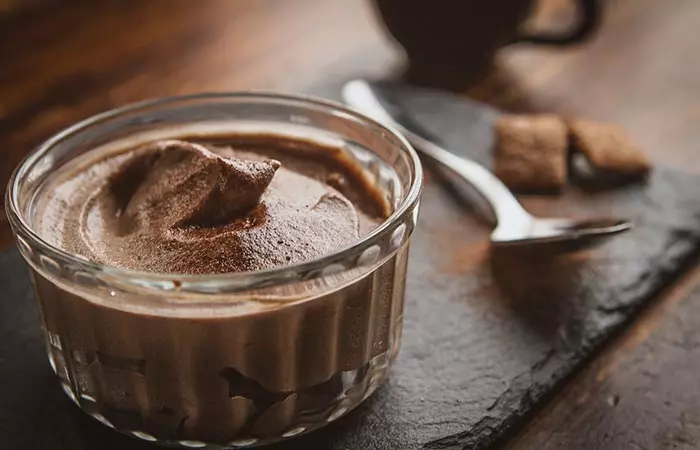
You Will Need
- 2 cans full-fat coconut milk
- 4 tablespoons cocoa powder
- 4 tablespoons sweetener (maple syrup, coconut nectar or honey)
- 2 teaspoons vanilla extract
- A pinch of salt
- 100 grams dark chocolate
Method
- Pour the coconut milk into a bowl and whisk it well.
- Add the cocoa powder, salt, and vanilla extract and whisk while adding the sweetener.
- Whisk this mixture for a few minutes until it starts to thicken.
- Once you get the desired consistency (thick but pourable), pour it into your serving glasses or dish and leave it in the refrigerator to set.
- After a few hours, top it with chocolate shavings and serve.
 Did You Know?
Did You Know?It’s important for you to know how to select and store coconut milk so that your recipes come out well.
How To Select and Store
Selection
When buying coconut milk from the store, there are a few things you need to look out for:
- Avoid Cans: Try not to buy coconut milk that is sold in cans since they are known to contain BPA, a carcinogen.
- Avoid Added Sugars: Always buy unsweetened coconut milk that does not have added flavors or sweeteners.
- Avoid Carrageenan: This is a common additive in some varieties of plant milk that can be cancerous and cause digestion troubles.
- Choose Organic: Always buy organic coconut milk.
The best way is to make your own coconut milk. If you follow the method in the article, you’ll have fresh and healthy coconut milk ready in a few minutes.
Storing
How do you store coconut milk, whether it is homemade or store-bought?
First things first – make sure you use the homemade one more often instead of relying on the store-bought one. Make enough quantity that you will entirely use up at one go.
If you absolutely need to store coconut milk, we recommend that you pour it in a glass jar, cover it tightly and refrigerate it until you use it again. Shake the jar thoroughly before your next use.
You can also freeze a large portion of the milk. This way, it will stay fresher longer.
All good things do come with their share of side effects. Let’s find out if coconut milk has any.
Are There Any Side Effects Of Coconut Milk?
There can be harmful effects when you consume coconut milk in excess quantities. Some of its side effects are:
1. High Blood Pressure
It can cause high blood pressure. Since coconut milk is high in fats, it can elevate the cholesterol levels in the body, which can lead to cardiovascular problems and high blood pressure. A cup of coconut milk contains about 55 to 60 grams of fat, most of which is saturated.
2. Allergies
It may lead to allergies. If you are allergic tree nuts, experts suggest that you avoid drinking coconut milk since it may lead to a life-threatening situation.
3. Weight Gain
Coconut milk is high in fat, so if you are following a restricted diet and trying to lose weight, it may not be for you.
4. Constipation
Drinking large amounts of coconut milk every day may cause digestion troubles and constipation.
If you are allergic to coconut milk, you may try other alternatives, such as almond milk. Read the next section to compare the two.
Coconut Milk Vs. Almond Milk
Coconut milk and almond milk have distinct nutritional profiles. Here is a comparison of them (10), (11).
| Nutrients | Coconut Milk (100 g) | Almond Milk (100 g) |
| Energy | 31 kcal | 15 kcal |
| Water | 94.57 g | 97.4 g |
| Protein | 0.21 | 0.55 g |
| Fats | 2.08 | 1.22 g |
| Carbohydrates | 2.92 g | 0.34 g |
| Calcium | 188 mg | 173 mg |
| Potassium | 19 mg | 31 mg |
Coconut milk is notably higher in calories and fats, primarily saturated fats, but is relatively low in protein. In contrast, almond milk is lower in calories and fats, is primarily composed of unsaturated fats, and has twice as much protein as coconut milk (10), (11).
Almond milk is also fortified with essential nutrients like vitamin A, while coconut milk is rich in calcium.
The choice between these two milk alternatives should be based on individual dietary preferences, health goals, and considerations about calorie and fat intake. One also must consider any potential dietary restrictions or allergies.
Infographic: 5 Reasons To Use Coconut Milk For Your Skin
Coconut milk, just like its oil, has plentiful nutrients that can revitalize our health, promote hair growth, and help maintain the skin barrier. While the article above has outlined all the benefits of this wholesome drink, we have rounded out some of its best perks for your skin.
Check out the infographic below to learn more about the benefits of applying coconut milk to your skin.
Some thing wrong with infographic shortcode. please verify shortcode syntax
Coconut milk benefits are many. It is loaded with many beneficial nutrients. It can positively impact heart health, treat diabetes, and aid in weight loss. In addition, it helps manage Alzheimer'si A neurological disease that causes dementia and impairs cognitive functions due to the degeneration of brain cells. and ulcers and has antimicrobial properties. Coconut milk can effectively moisturize the skin, heal sunburns, help treat skin ailments, exfoliate the skin, and double as a makeup remover. It also boosts hair growth and repairs dry, damaged hair. It also acts as a natural conditioner and detangler. This milk can be prepared at home easily. You can try different recipes with coconut milk to enjoy its beneficial effects. However, overconsumption may trigger negative effects. Hence, moderate intake is recommended. Try including coconut milk in your diet, skin, and hair care routine to reap its benefits.
Frequently Asked Questions
Can coconut milk improve immune system function?
Yes. Coconut milk can help improve immune system function. Dr. Varsha Khatri, a Registered Dietitian Nutritionist (RDN), says, “Lauric acid is found in coconut milk, a medium-chain fatty acid with antimicrobial properties. It can help the body fight harmful pathogens and give the entire immune system an uplift.” She also adds, “Moreover, it has high levels of vitamins C and E that are good antioxidants to protect the body from oxidative stress.”
Can I substitute coconut milk for cow’s milk?
Of course, you can. Coconut milk is a great alternative, especially if you are lactose intolerant. Dr. Khatri adds, “In various recipes, including smoothies, baked goods and creamy sauces, Coconut milk can be used instead of cow’s milk. It also imparts a distinctive taste to these meals while still giving them a likeness of texture.”
How does coconut milk influence the flavor of dishes, especially in Thai and Indian cuisine?
According to Dr. Khatri, “Using coconut milk in recipes helps make them more filling and satisfying. It is frequently employed in Thai food and Indian cuisine to neutralize the spiciness.” Some common ingredients in Thai recipes like lemon grass, ginger, garlic, and chilies also go well with coconut milk. She adds, “Also, it matches well with some of the Indian spices such as turmeric, cumin, and coriander making an integration of tastes.”
Why does coconut milk separate?
When coconut milk becomes very cold, its protein and fats may separate from the liquid. You can heat it up a little or whisk it thoroughly in a bowl.
Coconut milk is high in saturated fat. Is it bad for me?
No, it isn’t. Coconut milk has vegetable fat, not animal fat. This means that it melts at room temperature and goes through your system without clogging your arteries.
Can pregnant women drink coconut milk?
Yes, they can! Coconut milk can be very healthy for the development of the fetus due to the wide variety of nutrients it offers. However, it has to be consumed in moderation.
How much coconut milk can I consume daily?
Coconut milk contains saturated fats, which should be limited to less than 10% of your daily calorie intake. Therefore, you may drink 1-2 cups of coconut milk daily.
Does coconut milk have Omega 3?
No, it does not contain Omega 3 fatty acids.
Illustration: Significant Benefits Of Coconut Milk For Skin, Hair, And Health
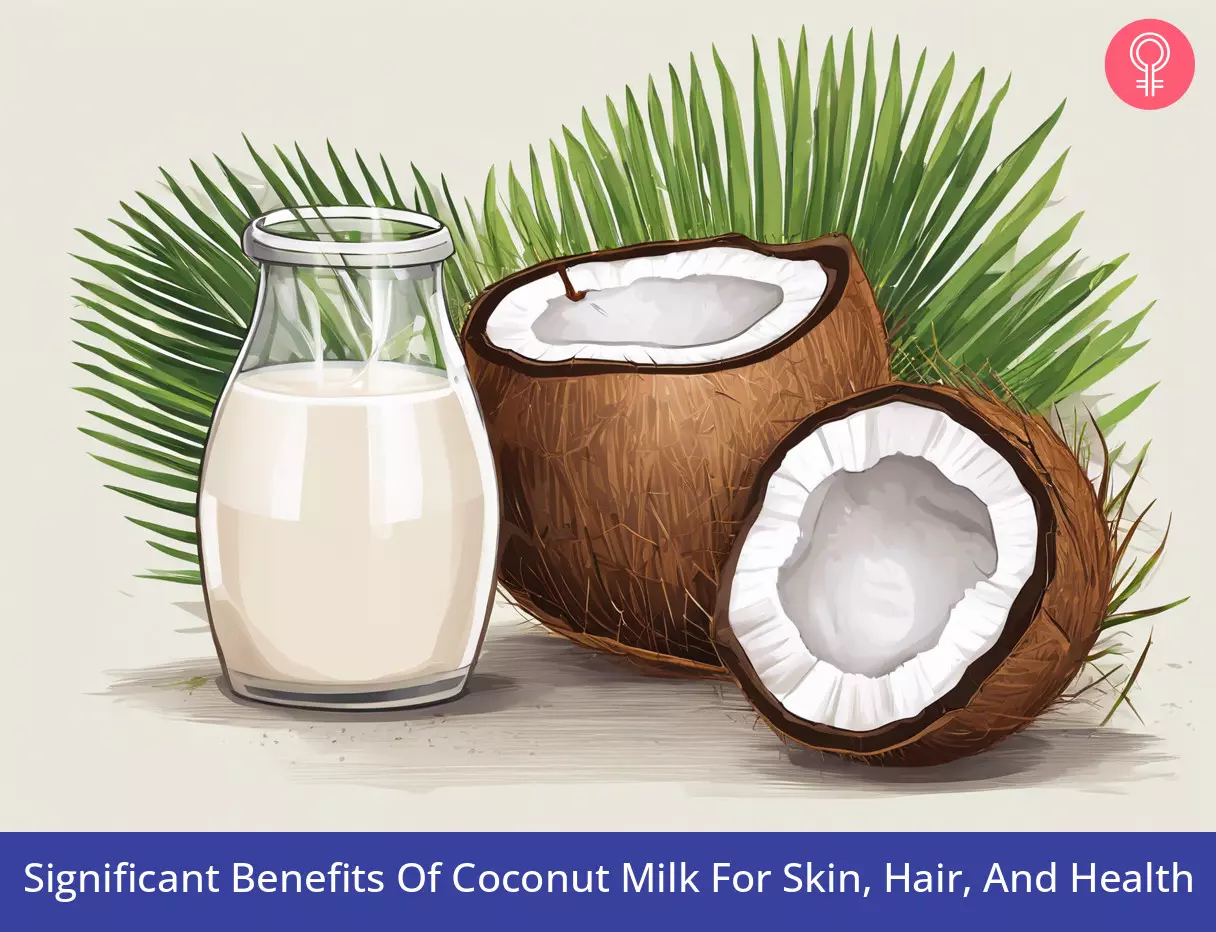
Image: Stable Diffusion/StyleCraze Design Team
Say goodbye to synthetic products and learn how to naturally get rid of body odor with easy DIY tips! Watch the video for ideas.
Personal Experience: Source
StyleCraze's articles are interwoven with authentic personal narratives that provide depth and resonance to our content. Below are the sources of the personal accounts referenced in this article.
i. My Experience With Bentonite Clayhttps://iamnaturallykinky.wordpress.com/tag/coconut-milk/
References
Articles on StyleCraze are backed by verified information from peer-reviewed and academic research papers, reputed organizations, research institutions, and medical associations to ensure accuracy and relevance. Read our editorial policy to learn more.
- “Consumption of a solid fat rich in lauric acid results in a more favorable serum lipid profile in healthy men and women than consumption of a solid fat rich in trans-fatty acids” The Journal of Nutrition, US National Library of Medicine, National Institutes of Health.
- “Impact of a traditional dietary supplement with coconut milk and soya milk on the lipid profile in normal free-living subjects” Journal of Nutrition and Metabolism, US National Library of Medicine, National Institutes of Health.
- “Medium-chain triglycerides increase energy expenditure and decrease adiposity in overweight men”Obesity Research, US National Library of Medicine, National Institutes of Health.
- “Anti-diabetic and antioxidant effects of virgincoconut oil in alloxan induced diabetic maleSprague Dawley rats” Journal of Diabetes Mellitus.
- “The role of dietary coconut for the prevention and treatment of Alzheimer’s disease: potential mechanisms of action” The British Journal of Nutrition, US National Library of Medicine, National Institutes of Health.
- “Antistress and antioxidant effects of virgin coconut oil in vivo”. Experimental and Therapeutic Medicine, US National Library of Medicine, National Institutes of Health.
- “Anti-inflammatory, analgesic and antipyretic activities of virgin coconut oil”. Pharmaceutical Biology, US National Library of Medicine, National Institutes of Health.
- “A pilot study on the effects of a polyherbal formulation cream on diabetic foot ulcers”. Indian Journal of Medical Research, US National Library of Medicine, National Institutes of Health.
- “Zinc and prostatic cancer”. Current Opinion in Clinical Nutrition and Metabolic Care, US National Library of Medicine, National Institutes of Health.
- “Almond Milk”. U.S. Department of Agriculture
- “Coconut Milk”. U.S. Department of Agriculture
Read full bio of Laine Greenawalt
- Varsha Khatri is a Registered Dietitian Nutritionist, Ayurvedic consultant, certified nutritional therapist, and senior yoga teacher. She holds a Master's degree in Holistic Health Education and Nutrition from John F. Kennedy University. She runs Illuminated Health, offering personalized nutrition consultations, online wellness coaching, and health education. With over a decade of experience, Varsha blends holistic health and Ayurveda to help clients achieve their wellness goals. She also creates educational materials for individuals and corporate clients, promoting proactive self-care and disease prevention.
 Varsha Khatri is a Registered Dietitian Nutritionist, Ayurvedic consultant, certified nutritional therapist, and senior yoga teacher. She holds a Master's degree in Holistic Health Education and Nutrition from John F. Kennedy University. She runs Illuminated Health, offering personalized nutrition consultations, online wellness coaching, and health education. With over a decade of experience, Varsha blends holistic health and Ayurveda to help clients achieve their wellness goals. She also creates educational materials for individuals and corporate clients, promoting proactive self-care and disease prevention.
Varsha Khatri is a Registered Dietitian Nutritionist, Ayurvedic consultant, certified nutritional therapist, and senior yoga teacher. She holds a Master's degree in Holistic Health Education and Nutrition from John F. Kennedy University. She runs Illuminated Health, offering personalized nutrition consultations, online wellness coaching, and health education. With over a decade of experience, Varsha blends holistic health and Ayurveda to help clients achieve their wellness goals. She also creates educational materials for individuals and corporate clients, promoting proactive self-care and disease prevention.
Read full bio of Ravi Teja Tadimalla
Read full bio of Arshiya Syeda
Read full bio of Aparna Mallampalli






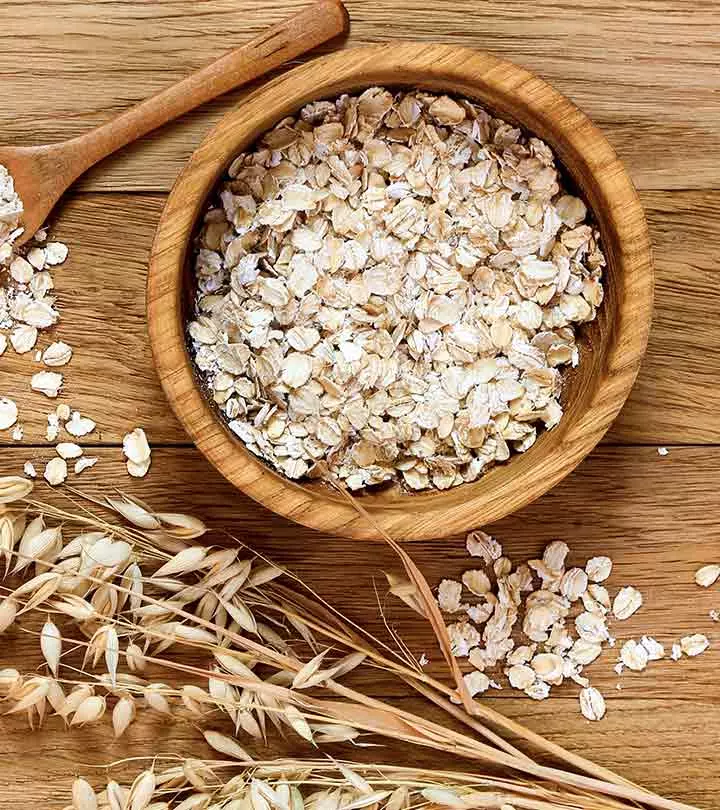
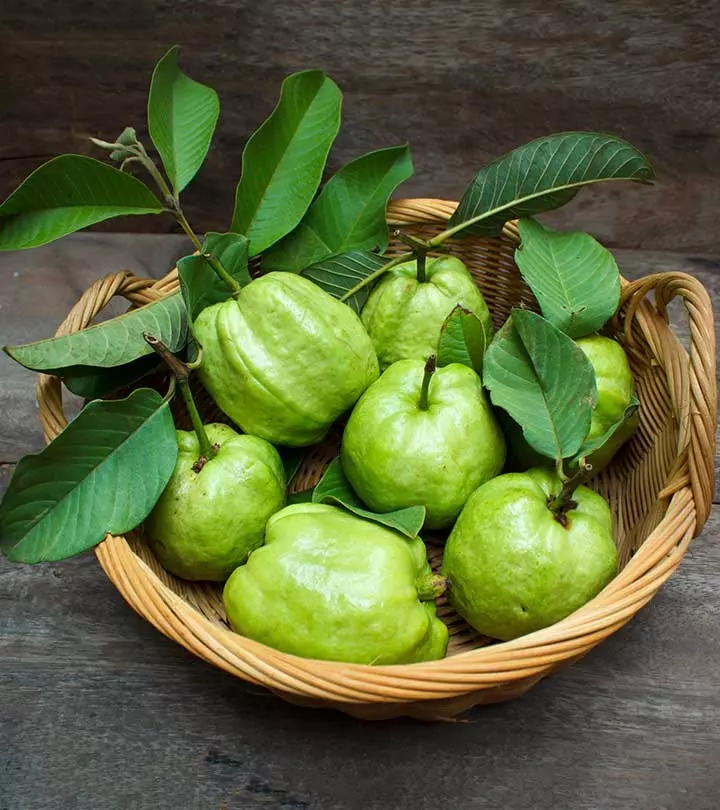

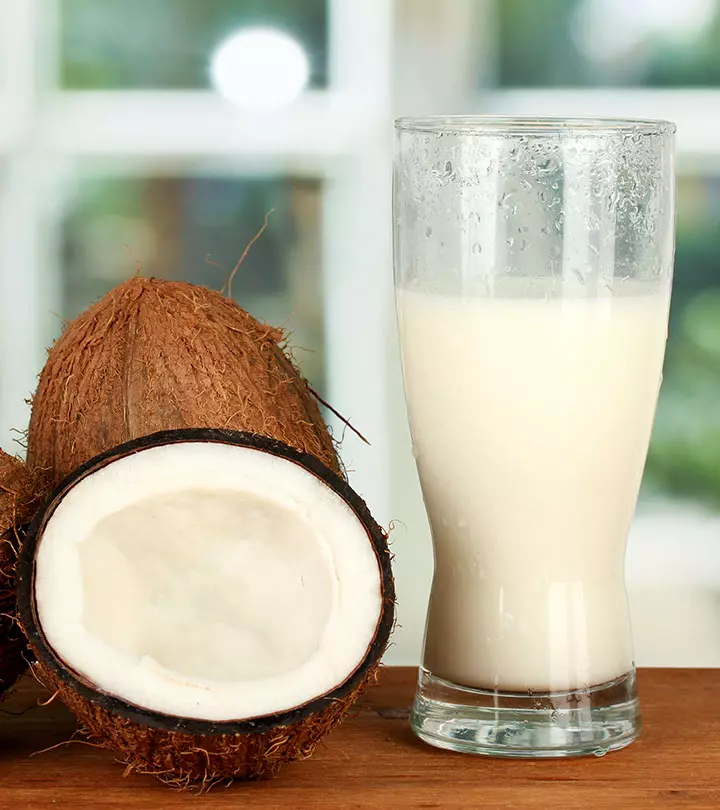


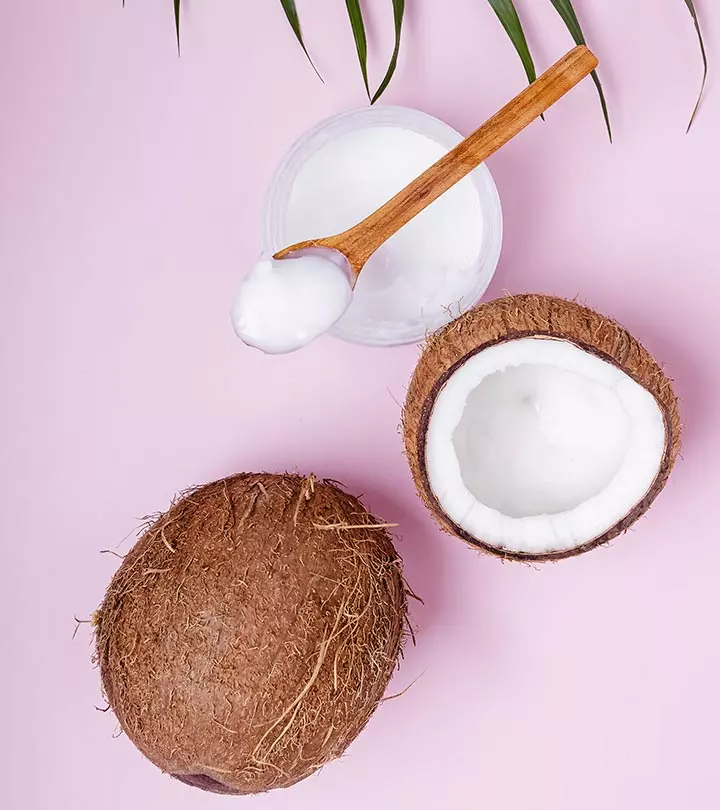


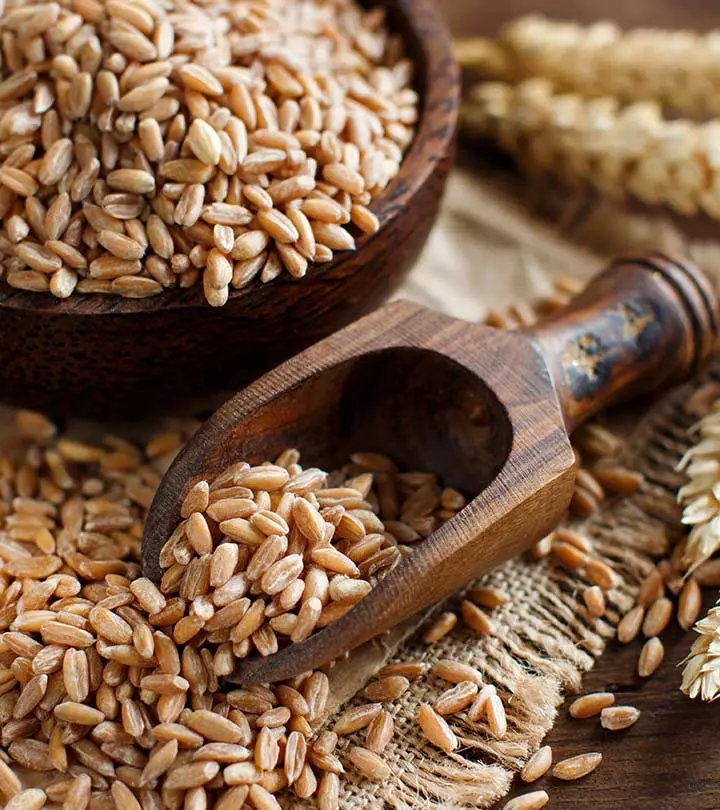
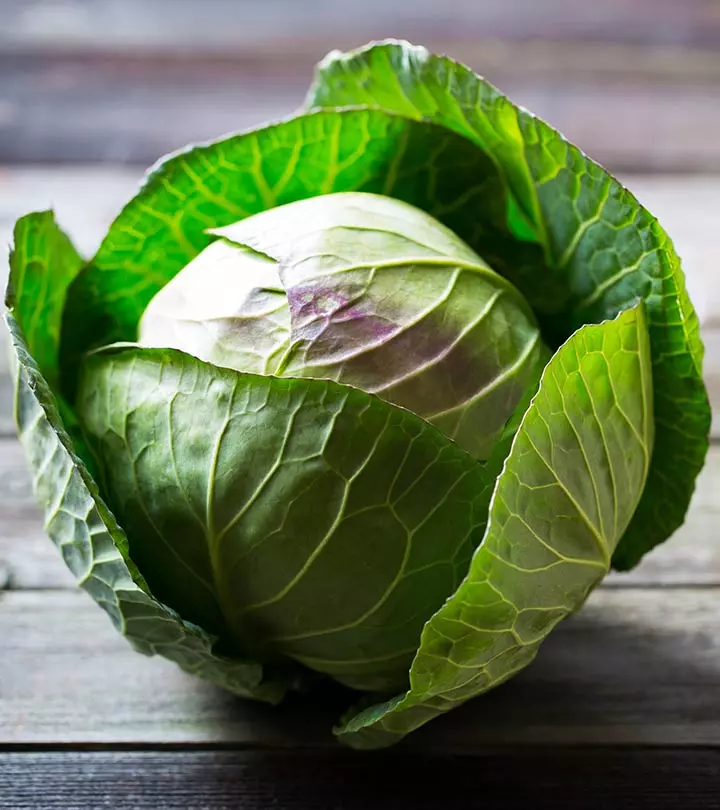
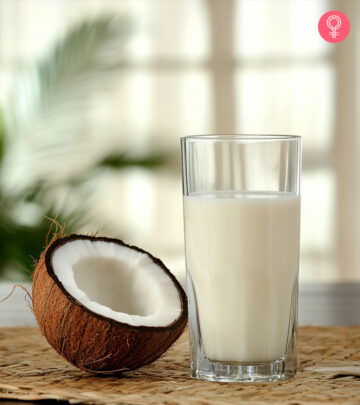

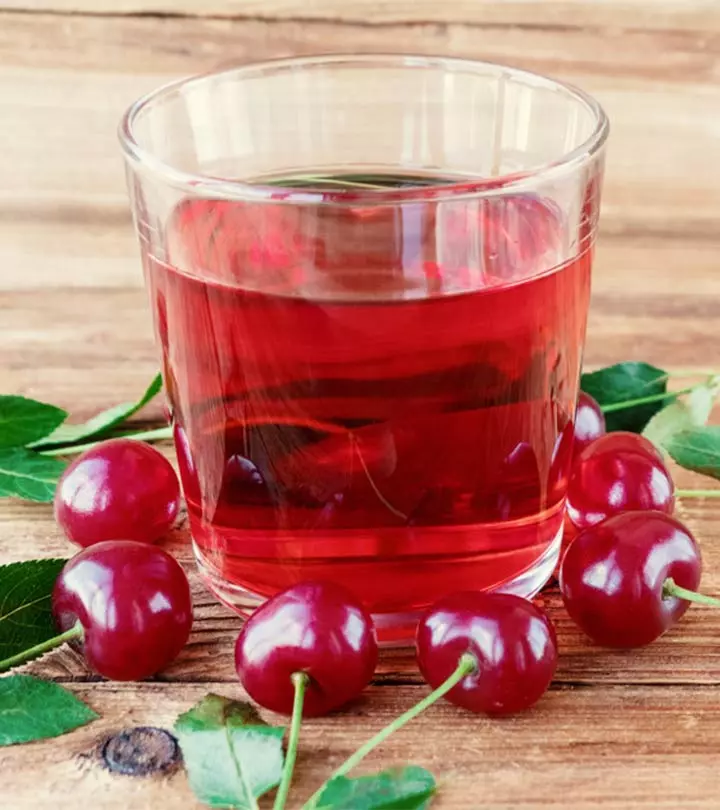
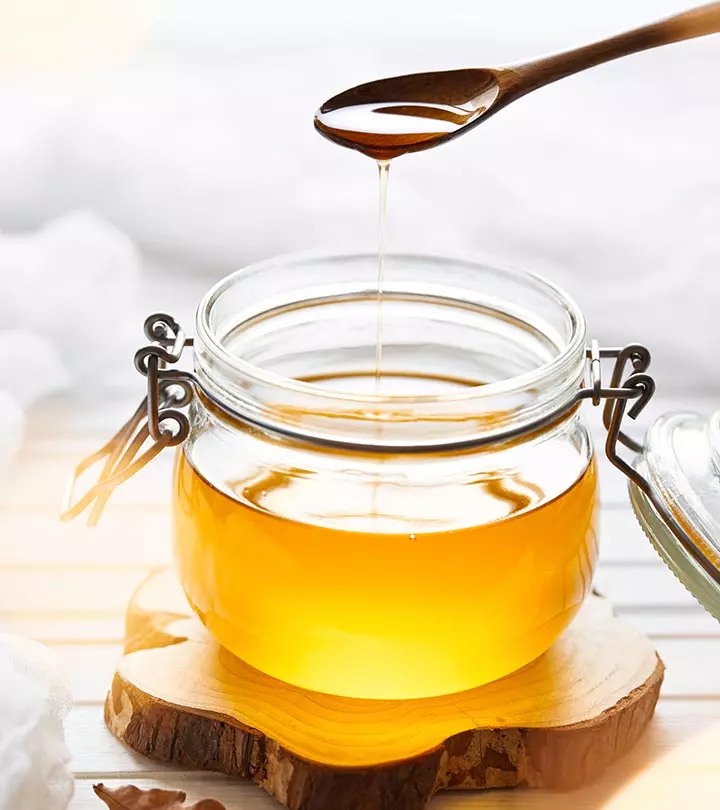

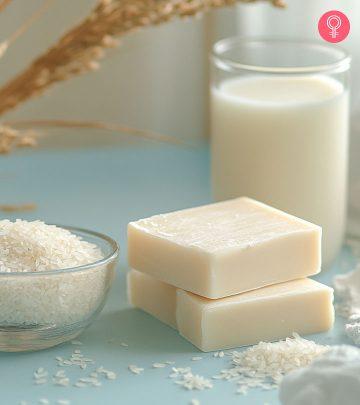
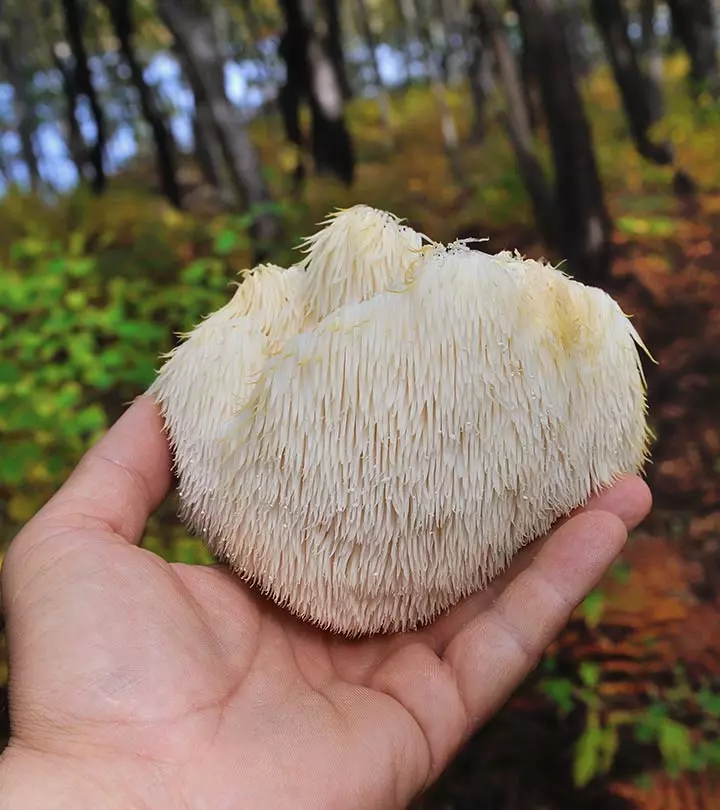
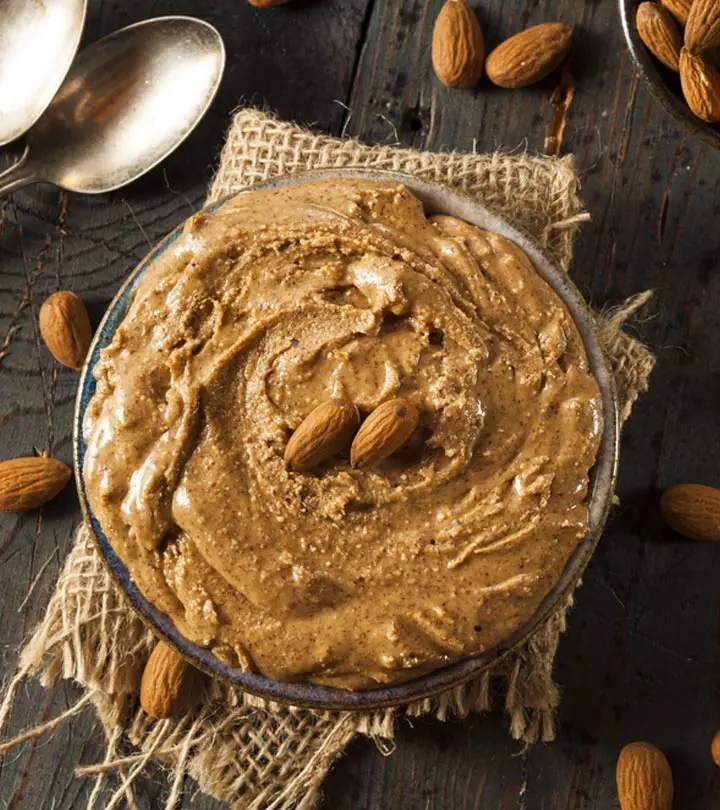

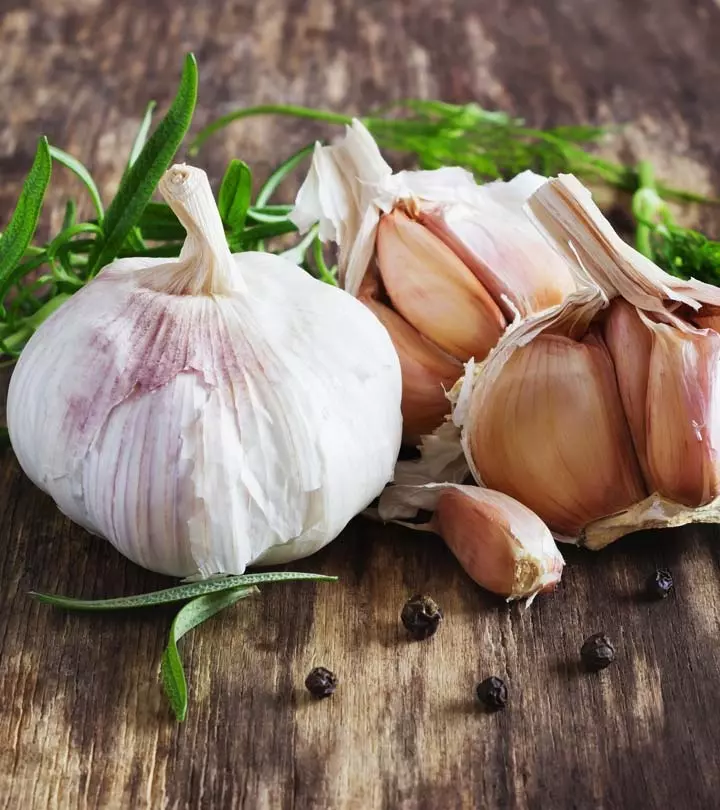
Community Experiences
Join the conversation and become a part of our empowering community! Share your stories, experiences, and insights to connect with other beauty, lifestyle, and health enthusiasts.